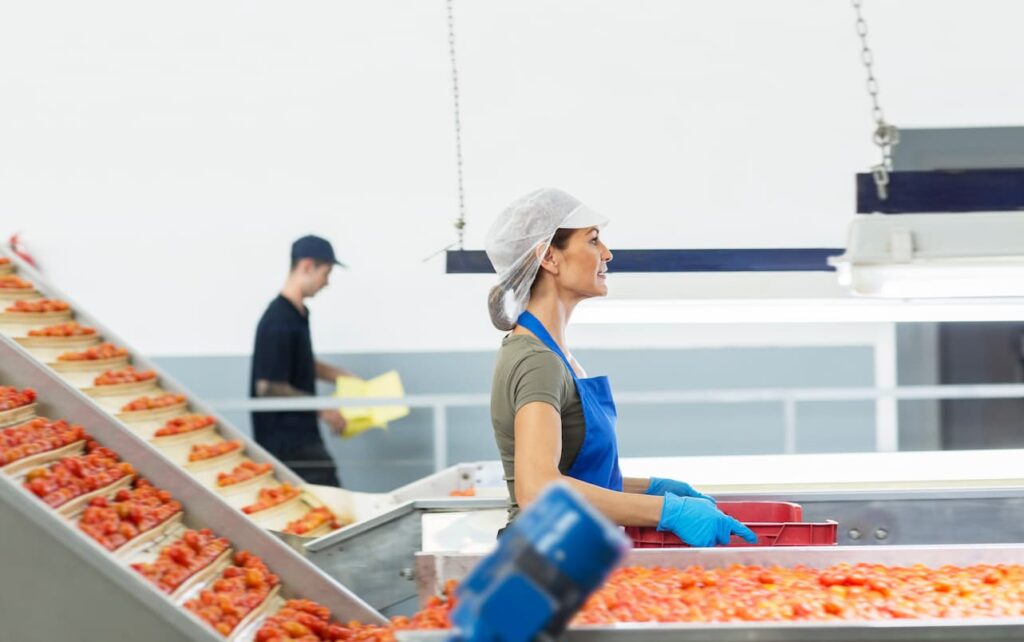Food safety is a paramount concern in the culinary industry, and maintaining strict hygiene standards is essential to prevent contamination and ensure the well-being of consumers. One often-overlooked aspect of food safety is the proper restraint of long hair for food handlers.
In this comprehensive guide, we’ll explore the importance of restraining long hair and provide practical tips and best practices for food handlers to maintain the highest standards of cleanliness and safety in the kitchen.
Why Hair Restraint Matters
Before delving into the methods of restraining long hair, it’s essential to understand why this practice is crucial in a food preparation environment:
- Contamination Prevention: Long hair can carry dirt, dust, and even pathogens, posing a contamination risk to food. Even the cleanest hair can shed particles, which, if they come into contact with food, can compromise its safety.
- Compliance with Regulations: Health and safety regulations often mandate that food handlers, especially in professional kitchens and restaurants, keep their hair restrained. Non-compliance can result in fines, penalties, or even restaurant closures.
- Customer Confidence: Restaurants and food establishments that prioritize hygiene and adhere to food safety standards tend to instill more confidence in customers. Proper hair restraint contributes to a professional and clean appearance.
- Personal Safety: Beyond food safety, long hair that is not properly restrained can pose personal safety risks. Hair can get caught in kitchen equipment, leading to accidents and injuries.

Effective Methods for Hair Restraint
Now, let’s explore effective methods for food handlers to restrain their long hair while working in a kitchen:
1. Hairnets or Caps
Hairnets: Hairnets are a common choice for food handlers. They completely cover the hair and prevent any loose strands from falling into food. Ensure that the hairnet is properly secured to cover all hair.
Caps: Caps, including chef’s hats, are another option. They provide a more stylish look while serving the same purpose as hairnets. Make sure the cap fits snugly and covers all hair.
2. Hairpins or Clips
For shorter long hair, using hairpins or clips can be effective. These accessories help keep hair away from the face and food preparation areas. However, ensure that the pins or clips are non-toxic and food-safe.
3. Braids or Ponytails
Braiding or tying long hair into a ponytail is a practical solution. This keeps the hair contained and reduces the chances of it falling into food. Be sure to use non-metallic bands or ties that won’t contaminate food.
4. Hair Ties with Caps
Combining a hair tie or bun with a cap is a popular choice among chefs. This method not only keeps hair secure but also adds an extra layer of protection against contamination.
Also Read: Facts behind Hotblockchain Leaked Social Media Trends
5. Shower Caps
In situations where hairnets or caps are unavailable, disposable shower caps can serve as a temporary solution. They are easy to carry and can be used in a pinch.
6. Regular Maintenance
Regardless of the method chosen, food handlers should conduct regular checks during their shifts to ensure that their hair restraint remains effective. Loose strands or fallen hair should be immediately addressed.
Cultivating a Culture of Food Safety
In professional kitchens, it’s not just the responsibility of individual food handlers to maintain proper hair restraint; it’s a collective effort. Employers should provide clear guidelines and necessary equipment, such as hairnets or caps, and enforce their use. Regular training sessions on food safety and hygiene practices, including hair restraint, should be part of the kitchen culture.
By prioritizing hair restraint as an integral part of food safety, the culinary industry can maintain the highest standards of hygiene, reduce contamination risks, and ensure the well-being of both staff and customers. In the kitchen, where precision and cleanliness are paramount, proper hair restraint is not just a guideline; it’s a necessity.
Also Read: Totally Science Gitlab: Scientific Collaboration being Revolutionized


